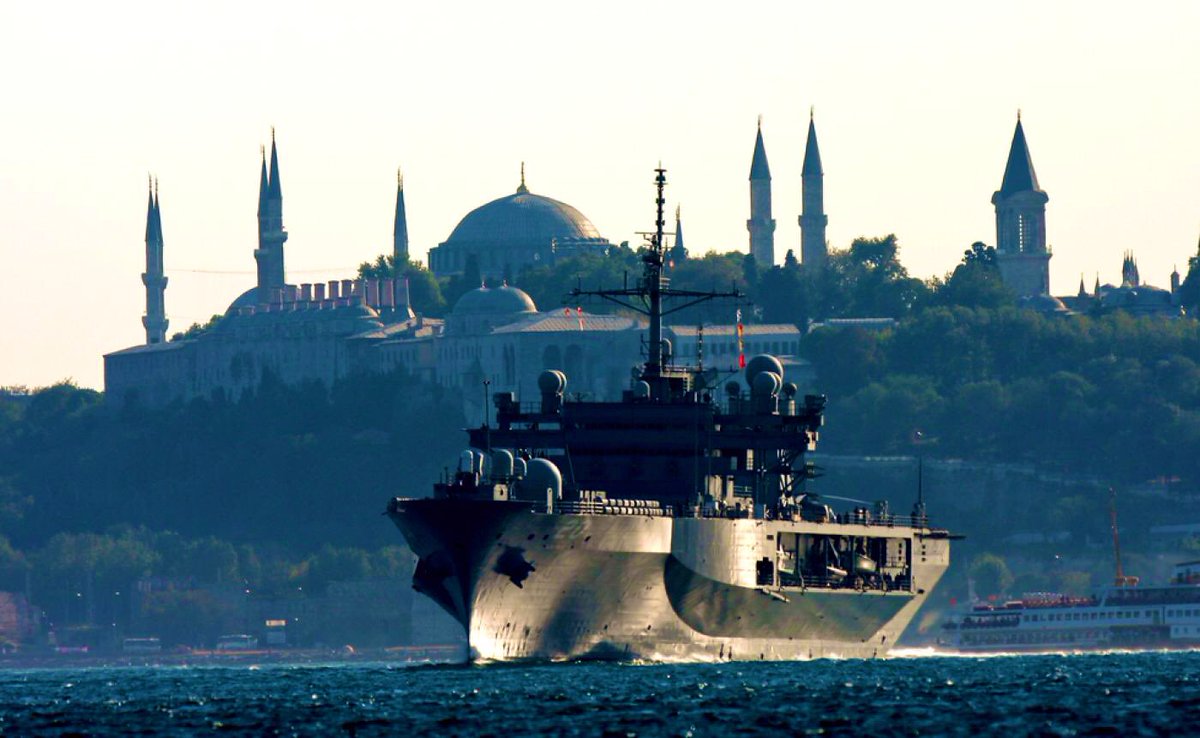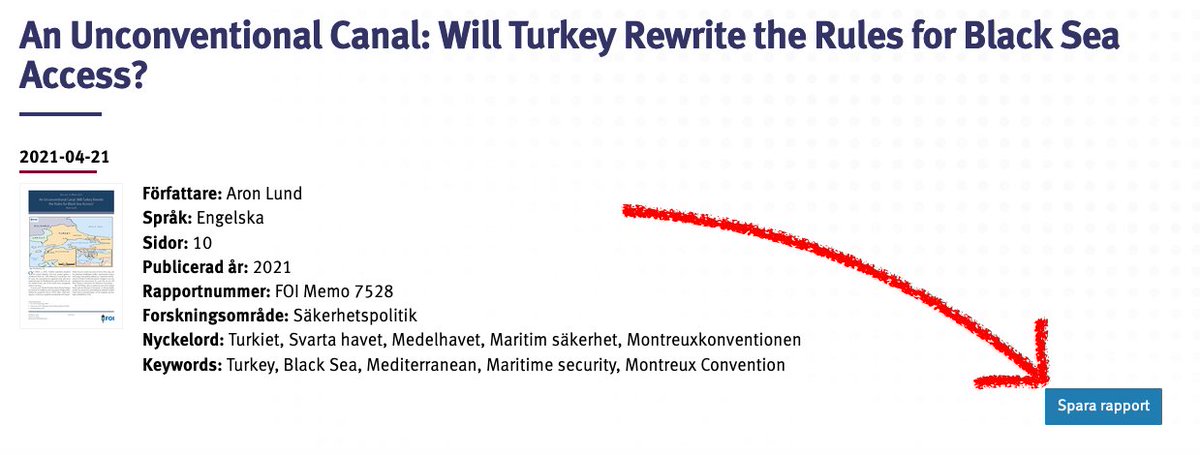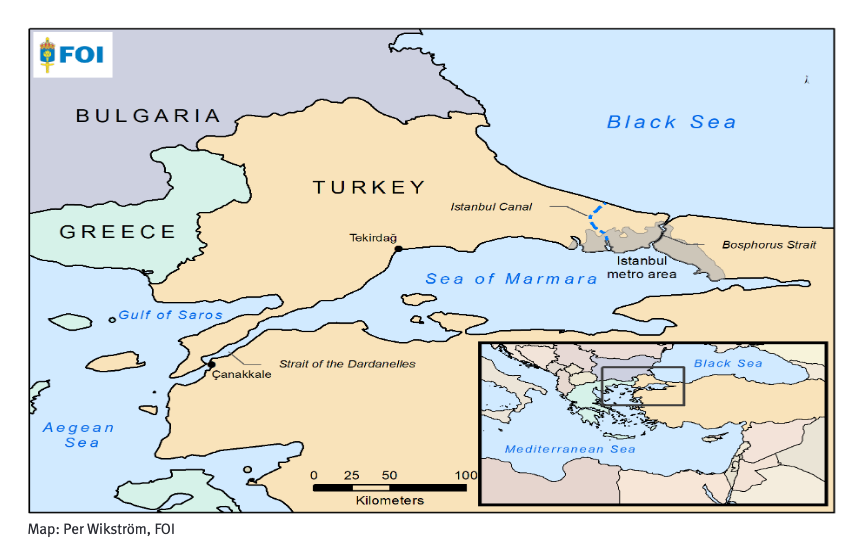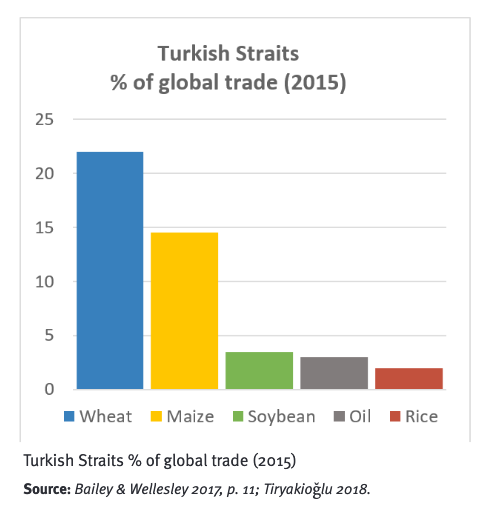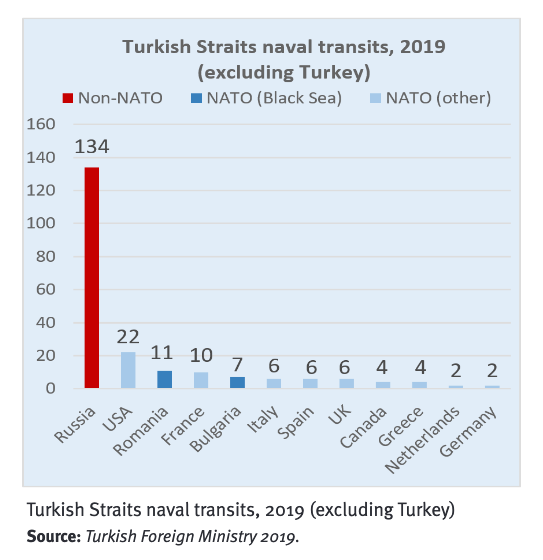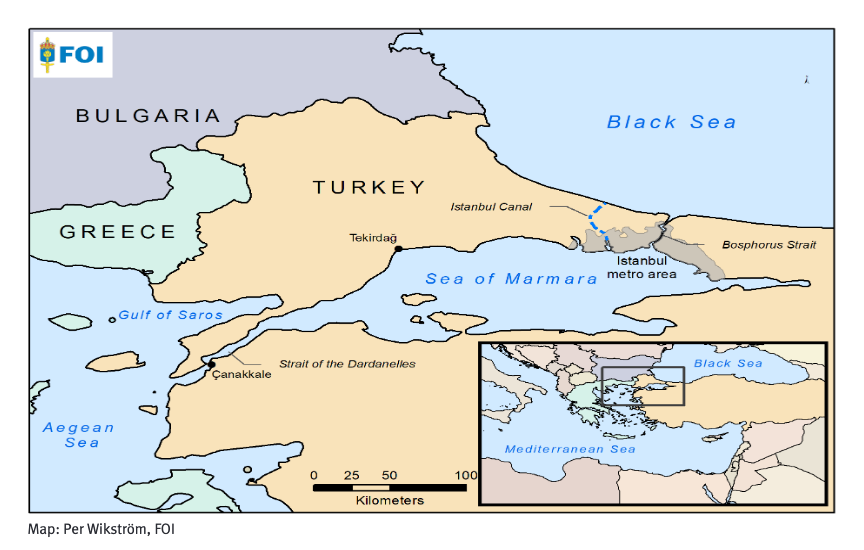An Unconventional Canal: Will Turkey Rewrite the Rules for Black Sea Access?
In a new background briefing for @FOIresearch I look at how Erdogan’s canal project could affect the Montreux Convention and the Russia/NATO naval power balance.
Read it here: https://foi.se/rapportsammanfattning?reportNo=FOI%20Memo%207528">https://foi.se/rapportsa...
In a new background briefing for @FOIresearch I look at how Erdogan’s canal project could affect the Montreux Convention and the Russia/NATO naval power balance.
Read it here: https://foi.se/rapportsammanfattning?reportNo=FOI%20Memo%207528">https://foi.se/rapportsa...
I’m a little daft, so I made my English-language tweet link to the Swedish-language version of FOI’s website.
Instructions:
• Follow the red arrow.
• Click the blue button.
• Brace yourself as you transform, werewolf-like, into an expert on Black Sea/Mediterranean security.
Instructions:
• Follow the red arrow.
• Click the blue button.
• Brace yourself as you transform, werewolf-like, into an expert on Black Sea/Mediterranean security.
Here’s what this is all about: the Turkish Straits. Bosphorus to the north, Sea of Marmara in the middle, Dardanelles to the south. As the only link between the Mediterranean and the Black Sea, it is one of the world’s most critically important waterways. https://foi.se/en/foi/reports/report-summary.html?reportNo=FOI+Memo+7528">https://foi.se/en/foi/re...
For example, a fifth of the world’s wheat trade travels the Turkish Straits each day from the Black Sea breadbasket region. A lot of it comes from Russia, the world’s top wheat exporter, which also depends on the Straits for much of its seaborne oil sales. https://foi.se/en/foi/reports/report-summary.html?reportNo=FOI+Memo+7528">https://foi.se/en/foi/re...
The 1936 Montreux Convention sets detailed rules for Turkey’s management of the Straits, to prevent friction and conflict:
• Unhindered, toll-free access for trade.
• Regulates and slows warship passage.
• Strict limits on non-Black Sea navies entering.
https://foi.se/en/foi/reports/report-summary.html?reportNo=FOI+Memo+7528">https://foi.se/en/foi/re...
• Unhindered, toll-free access for trade.
• Regulates and slows warship passage.
• Strict limits on non-Black Sea navies entering.
https://foi.se/en/foi/reports/report-summary.html?reportNo=FOI+Memo+7528">https://foi.se/en/foi/re...
The convention’s restrictions on naval traffic are archaic and complicated but extremely important, especially for Russia. As noted by the late Michael MccGwire, “In war, the Black Sea becomes a grenade in Russia’s gut.” https://merip.org/1988/03/the-middle-east-and-soviet-military-strategy">https://merip.org/1988/03/t... (Yes, he did spell it like that.)
Today, the Montreux Convention’s main military effect is to limit NATO’s role in the Black Sea. To be sure, Turkey has the Black Sea’s biggest navy, but Russia compensates with on-shore capabilities (esp. since 2014) and can still access the Mediterranean. https://foi.se/en/foi/reports/report-summary.html?reportNo=FOI+Memo+7528">https://foi.se/en/foi/re...
So, what Erdogan wants to do is to build a canal that bypasses Istanbul and the Bosphorus. Called, rather appropriately, the “Istanbul Canal,” it is planned to be 45 km long and 400 meters wide, and would come at a cost of something like $12–25 billion. https://foi.se/en/foi/reports/report-summary.html?reportNo=FOI+Memo+7528">https://foi.se/en/foi/re...
The idea is a canal would make Istanbul cleaner & safer (probably true) and bring in lots of money, like Suez (unlikely).
Erdogan says Montreux won’t apply to it, but that’s spurious. Ships still need to pass the Sea of Marmara and the Dardanelles—both covered by the convention.
Erdogan says Montreux won’t apply to it, but that’s spurious. Ships still need to pass the Sea of Marmara and the Dardanelles—both covered by the convention.
So while it is unclear how the canal would serve Turkey economically, the fact that Erdogan may be about to undermine the Montreux Convention—which, for all its flaws, has regulated Black Sea/Mediterranean security for 85 years—has made a serious splash in international politics.
For example, Putin called Erdogan on Apr. 9: “In the context of Turkey’s plans to build the Istanbul Canal, the Russian President noted the importance of preserving the 1936 Montreux Convention […] with a view to ensuring regional stability and security.” http://en.kremlin.ru/events/president/news/65338">https://en.kremlin.ru/events/pr...
Anyway, in the end, what all this means is that you must immediately read my report: https://foi.se/en/foi/reports/report-summary.html?reportNo=FOI+Memo+7528">https://foi.se/en/foi/re...

 Read on Twitter
Read on Twitter